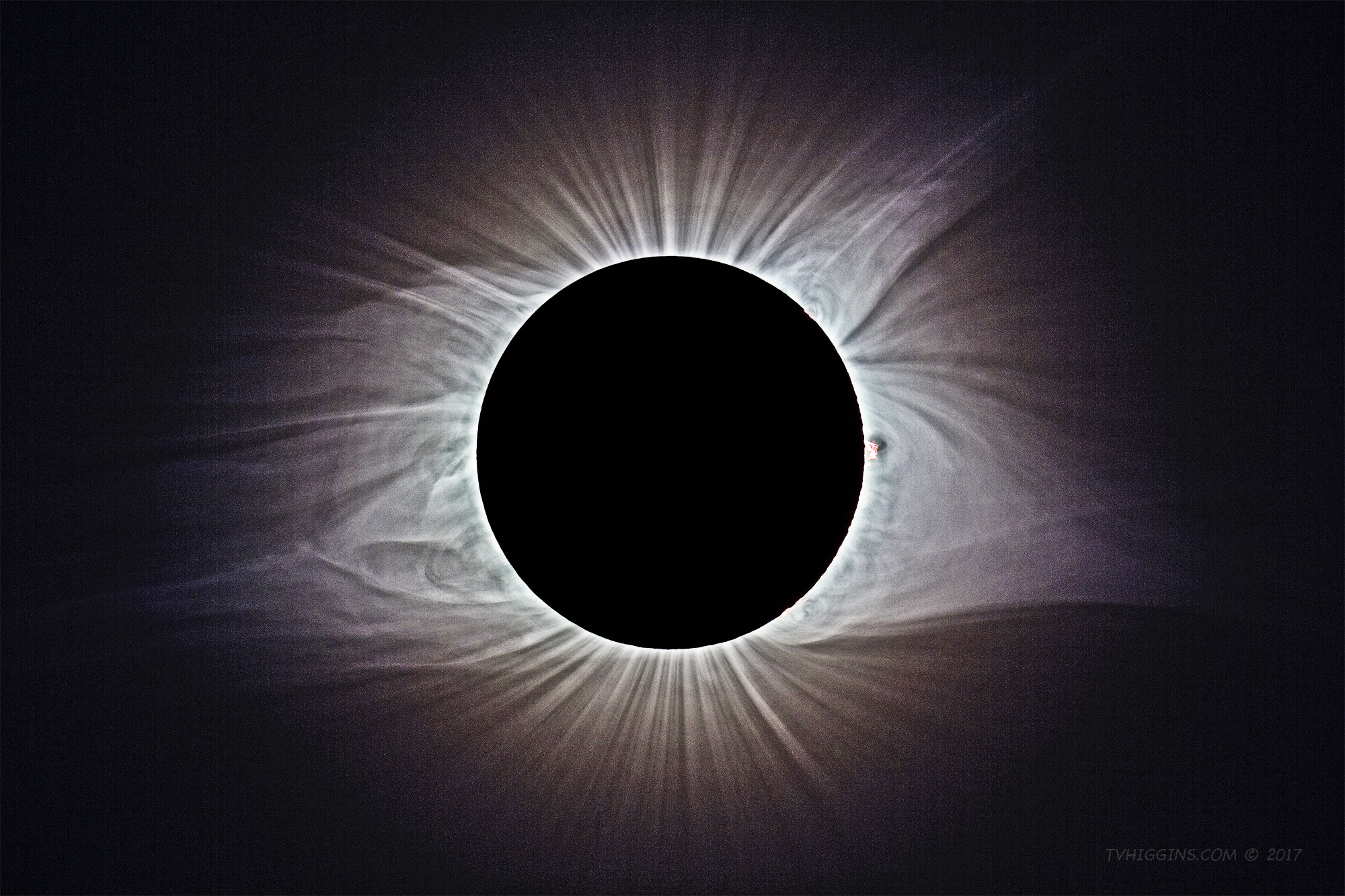2017 Solar Eclipse Coronal Study II
- Telescope: Stellarvue SVA130T-IS
- Mount: Losmandy G-11 with Gemini 2 controller
- Autoguiding: No
- Optical Configuration: 0.72x field flattener & reducer (f/5); no solar filter during totality
- Camera: Canon 60Da
- Light Frame(s): 6 frames from 1/500 sec to 1 sec
- Calibration: None (no darks, no flats, no biases)
- Exposure Time(s): 1/500, 1/250, 1/125, 1/60, 1/30 sec, and 1 sec
- ISO: 100
- Processing: Photoshop CC using HDR Pro
- Imaging Location: Prairie City, Ore.
This high-dynamic-range, high-contrast image, taken at totality during the 2017 solar eclipse, shows how the magnetic field of the sun becomes complex where there are local eruptions on the surface. Note the field loops on the left- and right-hand limbs, especially around the large prominence on the right. The magnetic field is little disturbed at the poles, though.
